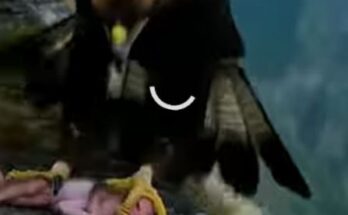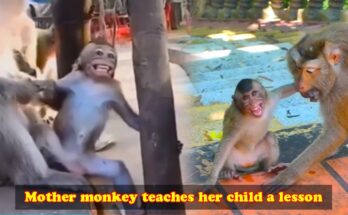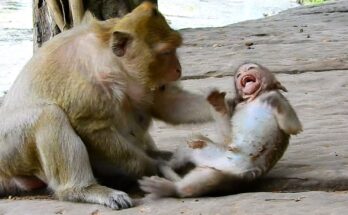In the vast wilderness where survival is a daily challenge, the story of Baby Monkey Matos stands out as both heartbreaking and deeply moving. Matos, a tiny, fragile infant monkey, was discovered in a dire state—so malnourished and weak that he could no longer even summon the strength to cry. His body was frail, his eyes sunken, and his limbs limp from exhaustion and lack of nourishment. Without his mother to nurse him, Matos faced the cruel reality of starvation, barely clinging to life.
Matos’s ordeal likely began with the loss or abandonment by his mother, a tragedy that is not uncommon in the wild. Mother monkeys are fiercely protective of their young, but illness, death, or external threats can tragically separate them. Alone, without the warmth of his mother’s embrace or the nourishment of her milk, Matos struggled to survive. At such a young age, an infant monkey is completely dependent on maternal care. Without milk, he lacked the essential nutrients needed for growth, immune defense, and basic energy.
Rescuers who found Matos were heartbroken by his condition. His body was so emaciated that every rib showed through his thin skin. He had no energy to hold himself upright, and his soft cries had faded into silence—a dangerous sign that his body was beginning to shut down. Too weak to even reach out for help, Matos lay motionless, his will to live flickering like a dying candle.
This tragic situation illustrates the delicate balance of life for wild animals, especially infant primates. In the wild, a baby monkey’s survival depends entirely on its mother for months. Without that bond, without nourishment, warmth, and protection, their chances of survival drop drastically. For Matos, each moment without milk was a step closer to death.
But amidst the darkness of his suffering, hope emerged. Wildlife rescuers and caregivers quickly moved to stabilize him. His frail body was wrapped in soft cloth to mimic the comfort of his mother’s fur, and a careful feeding schedule was initiated with small amounts of specially formulated milk. The process was slow and required immense patience. Too much food too quickly could overwhelm his weakened system. Instead, drop by drop, Matos was reintroduced to the nourishment he so desperately needed.
Over time, though still incredibly fragile, Matos began to respond. His eyes showed a flicker of recognition. He grasped a finger. He let out a faint, but distinct cry—the first in days. That small sound, though weak, marked a turning point: the voice of a baby monkey refusing to give up.
The story of Baby Monkey Matos serves as a powerful reminder of the fragility of life in the animal kingdom and the importance of compassion and intervention. Though he began his journey starving and too weak to cry, Matos’s resilience and the kindness of those who helped him show that even in the bleakest of circumstances, hope can be found—and lives can be saved.


